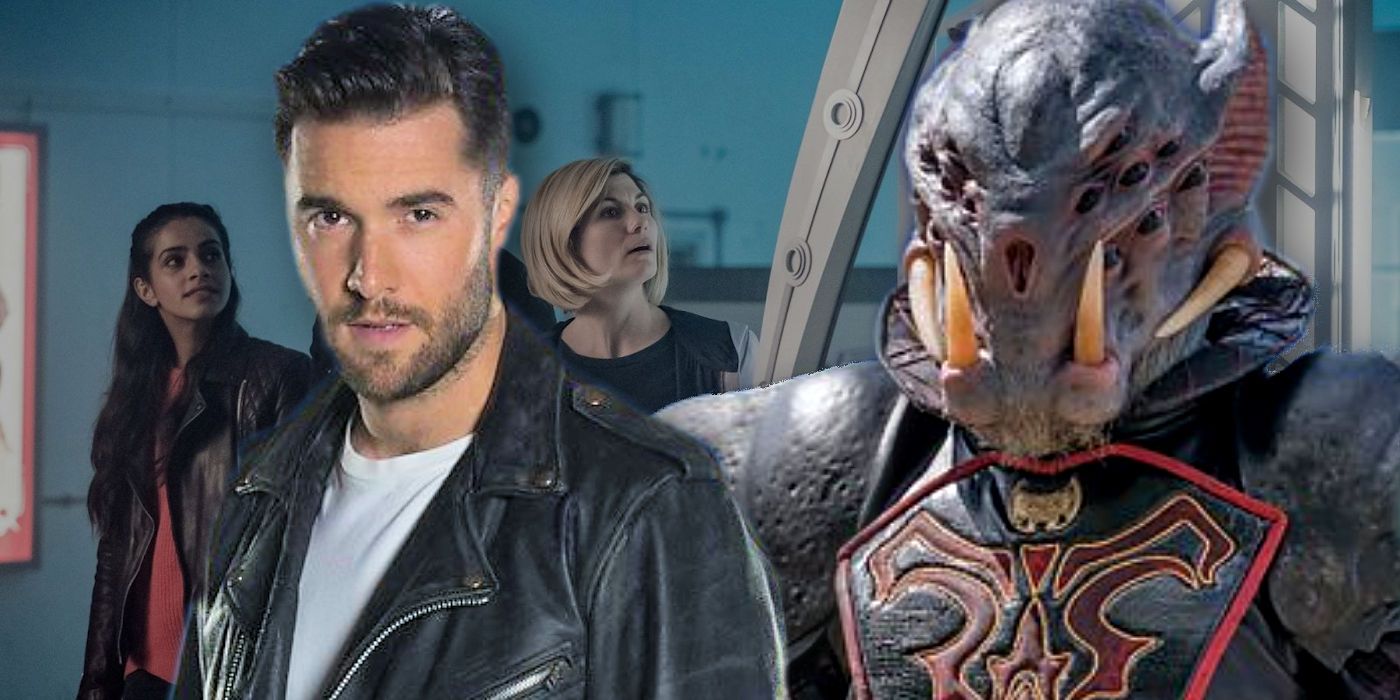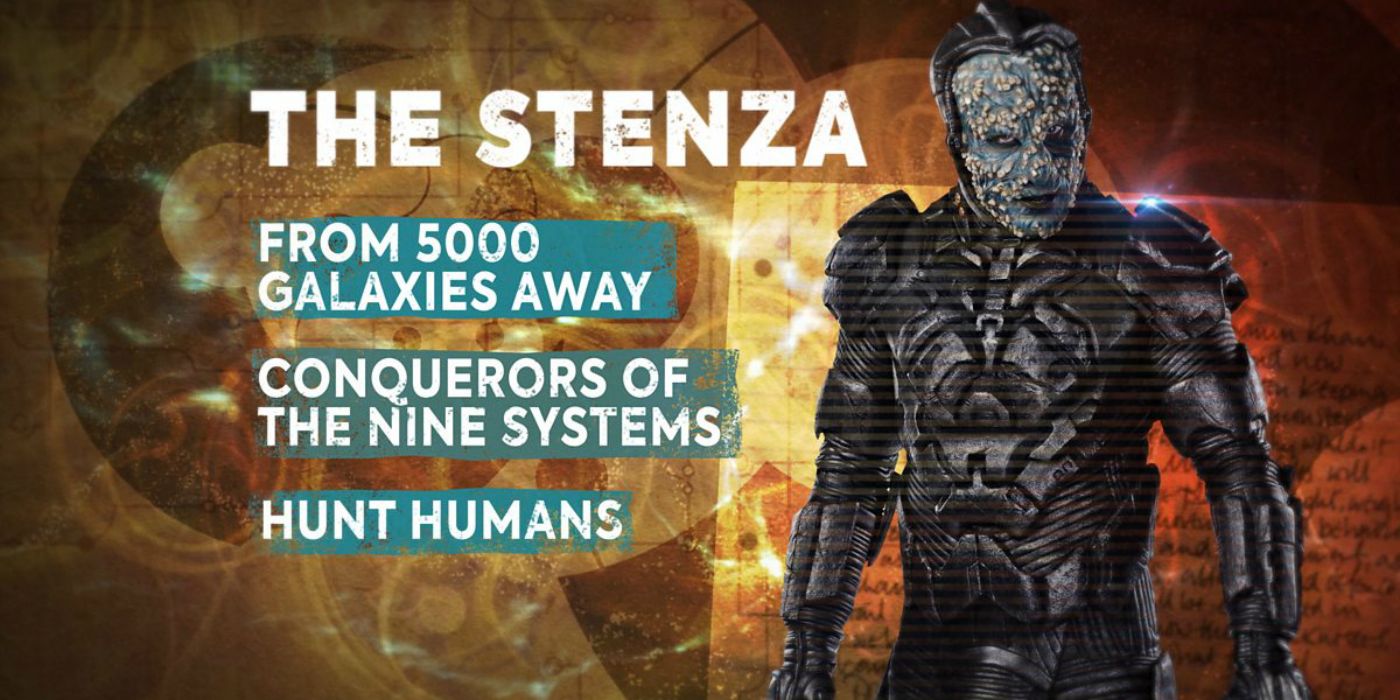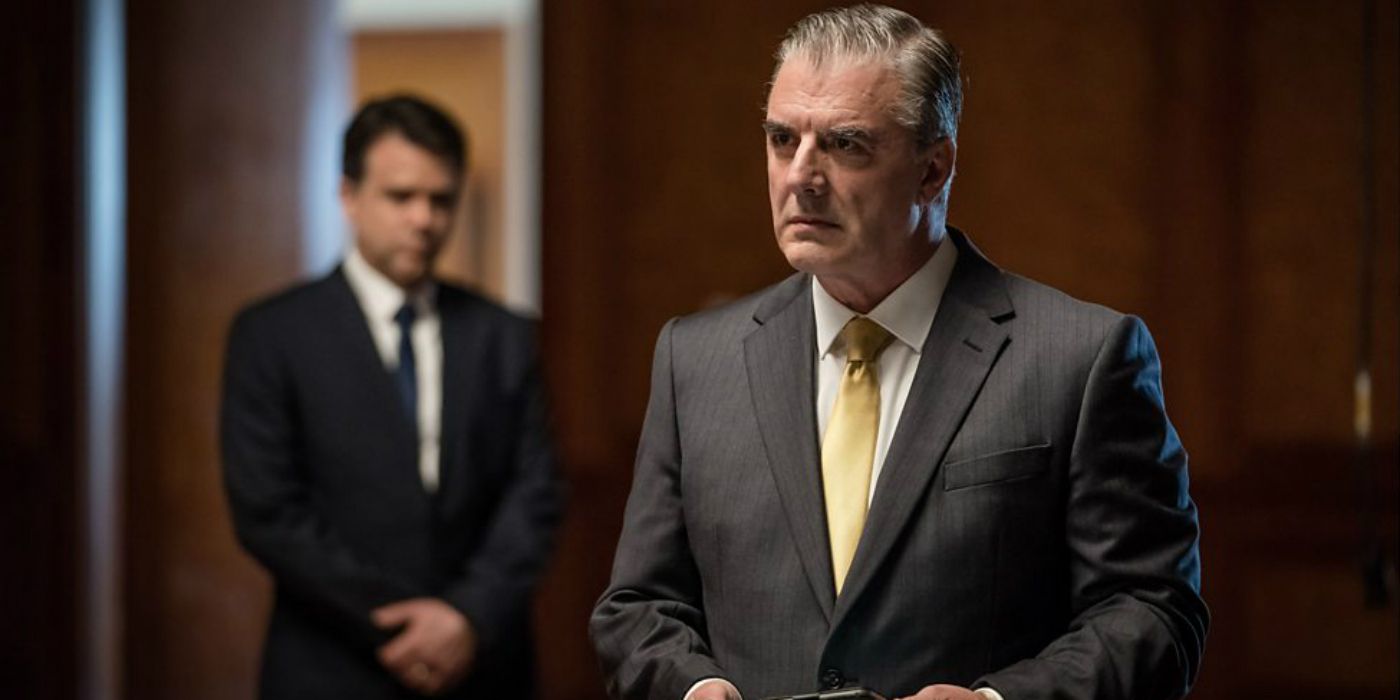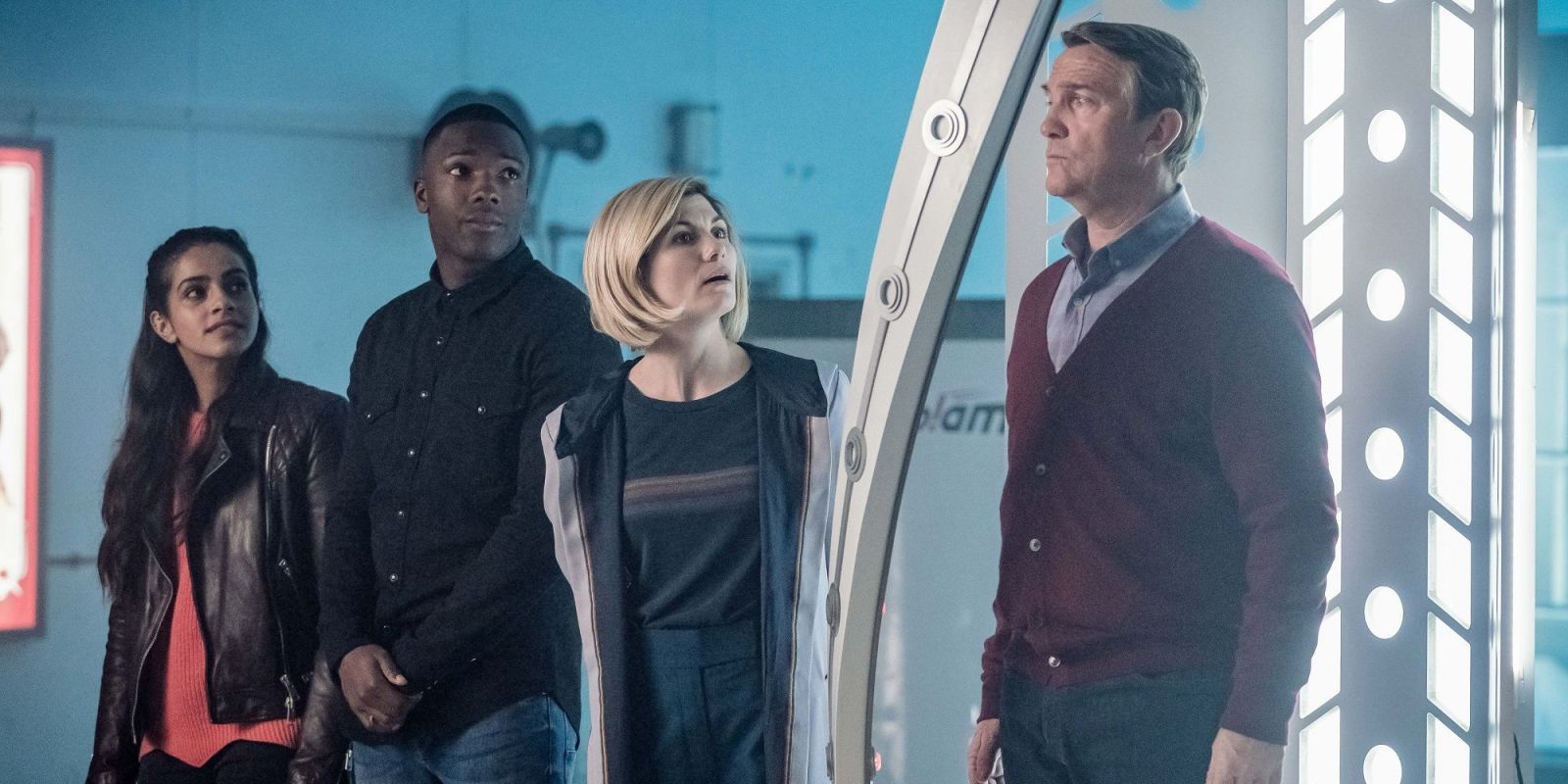Does Doctor Who season 11 have a villain problem or are fans (and sometimes critics) instead simply missing the point? New showrunner Chris Chibnall has relaunched Doctor Who with flair and style, and Jodie Whittaker's character is very much the Doctor of old. In general, critics have been impressed; although not every episode has been equal, they've all been solid in terms of plotting and pacing, and the series regulars have shone through in every scene. For all that's the case, though, there has been one recurrent criticism: the villains of Doctor Who season 11 are frankly a little weak.
Chibnall has chosen to ditch the classic villains like the Daleks or the Cybermen, Instead, he's introduced a whole new range of enemies - from the Stenza to giant spiders, from time-traveling white nationalists to ancient death-traps. But none of them have seemed to resonate with viewers in the way of the Daleks, the Cybermen, the Ice Warriors or the Sontarans. Is it fair to say that season 11's villains have been weak? Or, instead, it is possible Chibnall is telling a very different kind of story - and that the monsters aren't the real villains at all?
- This Page: The Problems With Doctor Who's Villains
- Page 2: The REAL Villains Of Doctor Who Season 11
The Problems With Doctor Who's Villains
Six episodes in, Doctor Who season 11 has only had two obvious villains. The premiere, "The Woman Who Fell to Earth," featured Tzim-Sha, a would-be leader of an alien race known as the Stenza who had traveled to Earth in order to hunt down a random human. Conceptually, he was interesting enough that, when the Stenza were mentioned in the second episode too, many viewers assumed they would be the main villains of the entire season. They've since been forgotten, however, suggesting there probably isn't such an arc at all. And then there's Krasko, a time-traveling white nationalist who was attempting to subtly rewrite history in "Rosa." Although he'd apparently been responsible for the death of thousands, an implant prevented him from directly harming anyone ever again, somewhat diminishing his threat. Both Tzim-Sha and Krasko were simply beamed away.
Related: Doctor Who: Jodie Whittaker (Brilliantly) Undid A Matt Smith Promise
Other than these two, the 13th Doctor has really struggled with abstract threats and impersonal monsters. "The Ghost Monument" is about survival, with Team TARDIS attempting to cross a weaponized wasteland and get to the TARDIS. In "Arachnids in the U.K.," the monsters were accidentally-enlarged spiders - including a giant arachnid that suffocated under its own weight, much to the Doctor's sorrow. "The Tsuranga Conundrum" featured a near-mindless creature that killed by accident rather than intent. Finally, in "Demons of the Punjab" it turned out the Thijarians had abandoned their murderous ways long ago, and were just trying to honor the dead by bearing witness to human tragedies.
All in all, then, it's understandable why viewers and critics alike are beginning to wonder what's going on with the villains in Doctor Who. There haven't actually been too many of them in the first place. Meanwhile, Tsim-Sha and Krasko have hardly been memorable. In fact, in the case of Krasko, he was frankly under-developed. None of these are ever going to be as influential as classics like the Daleks, Davros, the Cybermen, or the Weeping Angels. Tthey're unlikely to even be remembered in a couple of years' time.
Page 2 of 2: The REAL Villains Of Doctor Who Season 11
We Are The Real Villains Of Doctor Who Season 11
Ironically, though, that surface-level interpretation fails to understand just what Chris Chibnall is attempting to achieve with Doctor Who season 11. At first, this season appears to be bereft of iconic villains. In reality, though, it does indeed have a single recurring foe. It's what theologians would call "human nature." Jodie Whittaker's 13th Doctor is repeatedly going head-to-head with the dark side of the human psyche, confronting the evil and hatred that runs within the hearts of the human race.
That's evident in "Rosa" and "Demons of the Punjab," two historical episodes that have a lot of thematic aspects in common. In "Rosa," the real monster is racism, and one of the reasons Krasko is rather two-dimensional is because he's just one face of it. The true "monsters" in this episode are the racists of the Deep South - the businessman, the cop, the waitress, and of course the bus driver. Smart writing establishes a line of continuity between 1955 and the present day, with Ryan and Yaz reflecting on the racism they still encounter in Sheffield, and then, through Krasko, there's also a thematic link to the 52nd century, where the battle against prejudice is still ongoing.
Meanwhile, in "Demons of the Punjab," the real monster is the religious division and hatred that has turned brother against brother during the Partition of India. In one powerful scene, Prem reflects that there's "nothing worse than when people lose our minds. Our differences are more important than what unites us. Like we learned nothing in the War." Heartbreakingly, the episode ends with Prem stepping forward to face the true demons of the Punjab - not the aliens, but the bitterness and hatred of his own brother. This time round, the story is bound to the present through the use of the Remembrance Day motif, right down to a brief scene showing a field of poppies.
And then there's ego and greed, another recurring threat in Doctor Who season 11. In "The Ghost Monument," is the true threat the weapon-strewn surface of Desolation? Or is it in fact the selfishness of Epzo, one of the contestants, who makes survival on this desolate world so difficult? His overbearing arrogance and pride is a recurring obstacle, but by the end of the episode the Doctor has successfully influenced him into sharing his winnings. The same kind of theme is seen in "Arachnids in the U.K.," where Presidential hopeful Jack Robertson is an ego-driven real estate magnate who's an obvious caricature of Donald Trump.
In the end, viewers are encouraged to sympathize with the dying giant spiders his greed has inadvertently created, and feel nothing but contempt for a small-minded man who is lacking in empathy even though he has a solid chance of acquiring power. "The Tsuranga Conundrum" sees the Doctor face the same kind of problem; the Pting is just an inconvenience, the real threat is a faceless corporate entity who would rather blow up a spaceship filled with living beings rather than risk their profits.
This is why the villains of Doctor Who season 11 seem rather lacking at first glance, because they're not the true foes at all. Chris Chibnall is telling a far more sophisticated story, one that brings the Doctor face-to-face with one of the most dangerous enemies she could ever face - human nature. It's an approach Doctor Who has used time and again, including in classic stories such as The Green Death, The Caves of Androzani, and even in Chibnall's own much-loved 42. But, this time, it's the central theme of the entire season. And yet, it's important to stress that the episodes are tremendously optimistic; the Doctor and her friends bear witness to the fact that not all of human nature is evil, and that the good in us is in conflict with the bad. For every Krasko, there is a Rosa Parks. For every Robertson, there is a Graham. Doctor Who invites every viewer to join in the battle against all that is wrong with the world; to stand with the Doctor against the darker side of our own nature.




